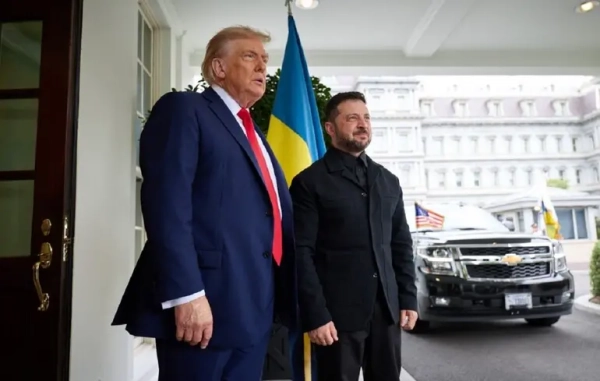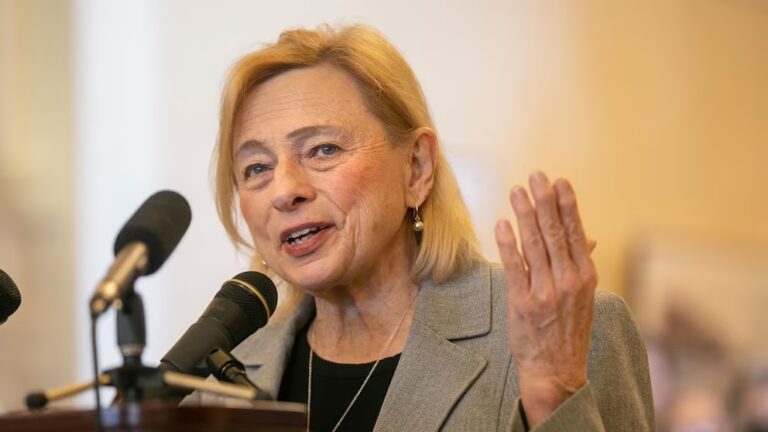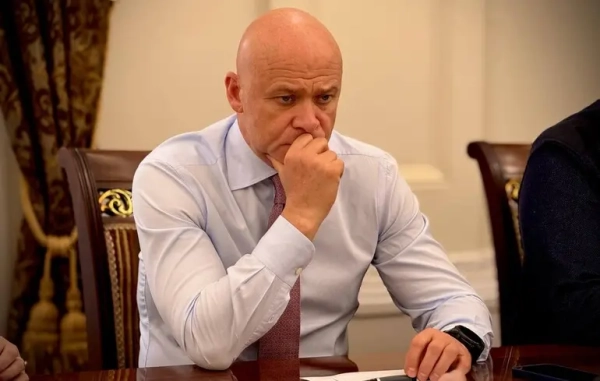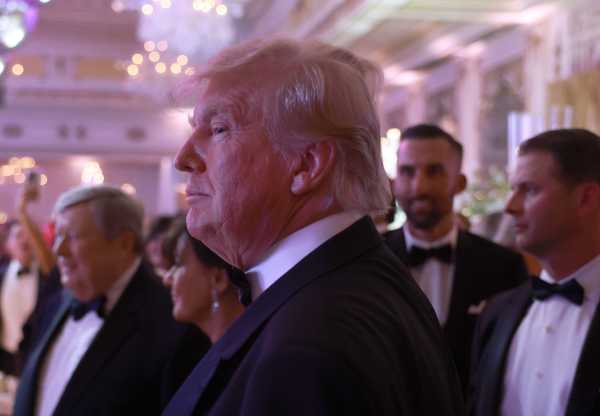
Andrew Prokop is a senior politics correspondent at Vox, covering the White House, elections, and political scandals and investigations. He’s worked at Vox since the site’s launch in 2014, and before that, he worked as a research assistant at the New Yorker’s Washington, DC, bureau.
Donald Trump has become the first-ever former US president to face criminal charges.
The New York Times on Thursday afternoon reported that a Manhattan grand jury had voted to indict former President Donald Trump for his role in a five-year-old scandal: the $130,000 hush money payment to Stormy Daniels. A lawyer for Trump confirmed the news, stating, “He did not commit any crime. We will vigorously fight this political prosecution in court.”
The Times report, based on five sources familiar with the case, said that an indictment would “likely be announced in the coming days.” Prosecutors working for Manhattan district attorney Alvin Bragg will reportedly soon ask Trump “to surrender and to face arraignment on charges that remain unknown for now.”
Bragg’s case reportedly alleges that the Trump Organization falsely logged the payment to Daniels as legal expenses so it wouldn’t have to be disclosed as money benefiting Trump’s presidential campaign. One specific charge would likely be falsification of business records, a misdemeanor offense in New York. But, per the Times, Bragg’s team has considered arguing that these business records were falsified to cover up another crime — which could mean Trump would be charged with a felony.
You may be thinking: “Stormy Daniels … That’s a name I’ve not heard in a long time.” Indeed.
The world first learned of Daniels in 2018, when the Wall Street Journal broke news that Trump Organization lawyer Michael Cohen had arranged the payment, made shortly before the 2016 election so the adult film actress wouldn’t go public with her claim to have had an affair with Trump. Cohen, already under investigators’ scrutiny, eventually pleaded guilty in August 2018 to violating federal campaign finance laws with that payment and others, in charging documents that famously identified Trump as “Individual-1.”
Cohen claimed he’d made the illegal payment at Trump’s direction, so there was much speculation about whether Trump was on the hook for violating campaign finance law too. But instead, the case fizzled out. A federal investigation was closed in 2019, and the New York district attorney’s office looked into it but seemed to lose interest in favor of pursuing a sprawling probe of Trump’s business dealings.
So why is it back now, in 2023?
Only Manhattan district attorney Alvin Bragg truly knows the answer to that. But some context is that when Bragg first took office early last year, he put the brakes on the Trump business probe — a decision that spurred two prosecutors to resign and was intensely criticized.
Amid this backlash and intensifying legal jeopardy for Trump federally and in the state of Georgia, Bragg appears to have rethought his earlier hesitancy. And he’s now reportedly embraced what the Times reports had become known in his office as the “zombie theory” — of pursuing charges based on the hush money.
We have not seen Bragg’s case and can’t yet assess the strength of his evidence. But, going off what has been reported so far, even some legal experts who view Trump as a grave threat to democracy have significant doubts about the strength of the case. “Of all the legal cases Trump faces,” Loyola Law School professor Jessica Levinson wrote, “this one may be the hardest to prove.”
It’s been a while. What was the hush money scandal about, again?
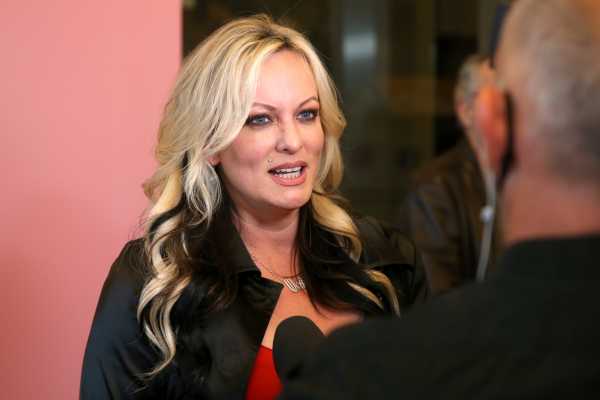
In October 2016 — weeks before the presidential election, as Trump was being publicly besieged by a series of sexual harassment or assault accusations from many different women — adult film actress Stormy Daniels was preparing to come forward with her own story about a consensual sexual encounter she’d had with Trump in 2006. But, her representatives let it be known, she’d also be willing to accept payment for her silence.
Earlier in the campaign, Cohen had worked with American Media Inc. — the parent company of the National Enquirer — to “catch and kill” unflattering stories about Trump, in which AMI would pay accusers for the exclusive rights to their story, and then not publish those stories. AMI executives were involved in the discussions about paying Daniels too, but they ultimately balked — so Cohen had to take care of it himself.
Cohen set up a shell company, Essential Consultants, and sent $130,000 to Daniels’s lawyer on October 27. Later, after Trump won the election, he paid Cohen back in installments in 2017.
The problem, federal prosecutors in the Southern District of New York later alleged, was that this violated campaign finance law. They argued that since this money was spent to help Trump win the election, it should have been disclosed as campaign spending and subject to legal limits on donations. Cohen pleaded guilty to this charge as part of a larger plea deal, so the case was never tested in front of a jury.
Yet prosecutors’ theory wasn’t universally accepted. The New York Times described it as a “somewhat novel use of campaign finance law,” and Attorney General Bill Barr sharply questioned it after he took office. In any case, SDNY prosecutors told a judge in July 2019 the case was closed, in part because Trump was the sitting president and per Justice Department policy he could not be indicted.
As Trump was about to leave office in 2021, though, SDNY prosecutors revisited the case, discussing whether they should reopen it when he no longer had presidential immunity. According to CNN legal analyst Elie Honig’s recent book Untouchable, prosecutors were split on the strength of the case.
“Some believed the evidence was more than enough to charge in an ordinary case, while others thought it was still a close call, though still chargeable,” Honig writes, continuing, “Even if the evidence was sufficient to support a charge, it also wasn’t a slam-dunk case in the majority view.”
He adds that some on the team believed the hush money scheme was “serious, but not the end of the world,” and that it seemed “somehow trivial and outdated” compared to his later acts like trying to overturn Joe Biden’s election win. So ultimately, SDNY decided to let it lie.
So how did this move to the Manhattan district attorney?
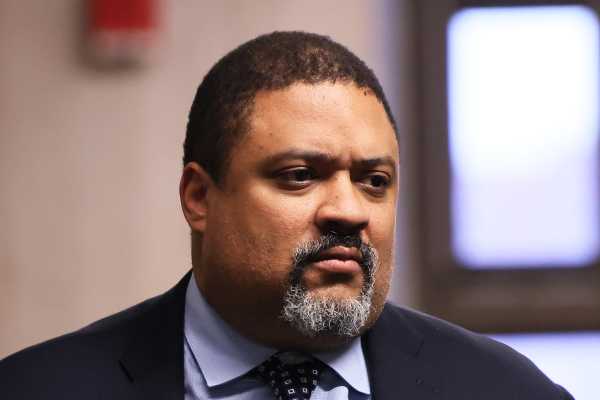
After news became public that SDNY had dropped the hush money case in 2019, then-Manhattan district attorney Cy Vance picked it up, bringing Cohen in for interviews and seeking Trump’s tax returns.
But the investigation soon sprawled outward.
First there was the real estate valuations case. Vance’s prosecutors developed a theory, backed by public evidence and Cohen’s testimony, that Trump overvalued certain properties when he sought loans and insurance policies, but undervalued those assets for tax purposes, so he’d owe less in property taxes. They explored charges over tax fraud, bank fraud, and insurance fraud.
But the problem was proving Trump knew his company was breaking the law, since he could have argued that everything his company did was approved by his chief financial officer and legal team, who were experts in such matters. So prosecutors zeroed in on that CFO, Allen Weisselberg, pressuring him for months to flip on Trump. Weisselberg did not do so.
So next came the “fringe benefits” case. In July 2021, Vance’s office charged Weisselberg and several Trump business entities with tax fraud. The company had paid apartment and car leases for Weisselberg and private school tuition for his grandchildren, without subjecting it to taxes. Trump himself was not charged, and the maximum penalties for Trump’s company were relatively small, so this wasn’t all that threatening a case.
With that trial pending, Vance left office, and Bragg, the newly elected district attorney, inherited the Trump probes in early 2022. After being briefed on the real estate valuations case, he reportedly wasn’t impressed. Per the New York Times, Bragg told the two lead prosecutors that he had doubts about moving forward with the case, and paused grand jury activity. Those two lead prosecutors resigned in February, and one, Mark Pomerantz, recently released a book giving his account of what happened. (Ankush Khardori wrote a helpful assessment of Pomerantz’s claims for New York magazine.)
Bragg, elected as a criminal justice reformer, then faced intense criticism in the media and from Democrats for being too lenient toward Trump. He said little at first, but by April he said the real estate valuations case was still moving forward. The fringe benefits case, meanwhile, was still heading for trial, and in August, Weisselberg agreed to change his plea to guilty (though he still didn’t flip on Trump, and was sentenced to five months in jail). Trump’s businesses were then convicted at the trial, and sentenced to pay a $1.6 million fine.
And at some point last year, Bragg’s office turned back to where the Manhattan DA’s investigation all started: the hush money.
What would Trump be charged with? And how strong is the case?
The clearest New York state charge against Trump here would be that he falsified business records. When the Trump Organization reimbursed Cohen for the hush money payment to Daniels, they logged the payments as legal expenses — but Cohen was acting as a bagman in this case, not an attorney.
That’s simple enough, provided Trump can be personally tied to the false bookkeeping entry. The issue here, though, is that this would be just a misdemeanor. Yet according to the Times, Bragg has been trying to make a felony case against Trump. And that is trickier.
To turn a misdemeanor business records violation into a felony, Bragg has to argue that the records were falsified to cover up another crime. But what crime?
Federal prosecutors previously looked into whether the hush money violated federal campaign finance law, but Bragg is a state prosecutor tasked with assessing violations of state law.
Three main possibilities have been mentioned in commentary: that Bragg could argue the payment violated state campaign finance law, that he could try to incorporate the federal law violation anyway, or that perhaps state tax law would come into play somehow. But if Bragg’s reasoning and evidence are weak here, the felony charge could well be tossed out of court.
All of this shows that the case is not exactly well-founded in precedent. “The case against the former president hinges on an untested and therefore risky legal theory involving a complex interplay of laws, all amounting to a low-level felony,” three Times reporters wrote this month.
Related
Would Trump’s indictment help or hurt his 2024 campaign?
This leaves open the possibility that Bragg is trying to reverse-engineer a preferred outcome — a felony charge against Trump — for political purposes, and is stretching to bring a case that would not typically be brought. And Trump’s allies have not been shy about making this argument.
There are other challenges for Bragg’s potential prosecution. Norman Eisen, Fred Wertheimer, and E. Danya Perry, who all support indicting Trump, wrote a lengthy analysis at Slate last month about what they termed the “legal hurdles” Bragg would face in doing so, including New York’s statute of limitations, the necessity of relying on Cohen as a witness despite his checkered past, and that Trump could say he was simply relying on the advice of counsel that everything he did was legal. The three argued that all of these hurdles could be overcome.
Levinson, the Loyola law professor, is more worried. Listing similar weaknesses in the case, she wrote earlier this month that she feared bringing a weak case would vindicate Trump if a judge or jury sides with him.
“For the sake of the rule of law and of legal and political accountability,” Levinson wrote, “let’s hope Bragg and his office know something we don’t about the strength of his case against the former president.”
Update, March 30, 6:30 pm ET: This article was originally published on January 31 and has been updated multiple times to reflect new developments in the case and Trump’s indictment.
Sourse: vox.com
